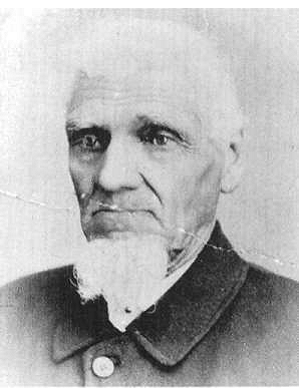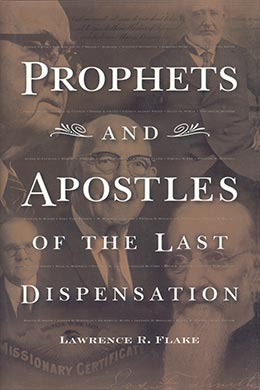William Smith
Lawrence R. Flake, Prophets and Apostles of the Last Dispensation (Provo, UT: Religious Studies Center, Brigham Young University, 2001), 367–69.

Born: 13 March 1811, Royalton, Vermont
Quorum of the Twelve Apostles: 15 February 1835 (age 23)
Released from the Quorum of the Twelve Apostles: 4 May 1839
Restored to the Quorum of the Twelve Apostles: 25 May 1839 to 6 October 1845
Patriarch to the Church (ordained but not sustained): 24 May 1845 to 6 October 1845
Excommunicated: 19 October 1845
Died: 13 November 1893 (age 82), Osterdock, Iowa
The Devil has made a violent attack on my brother William,” wrote the Prophet Joseph Smith in his journal 1 January 1836 in summation of a series of malicious acts performed and hateful words spoken by his younger brother during the previous few months. William, a member of the Quorum of the Twelve, had a fiery temper and on several occasions verbally abused the Prophet and others in public. Before he would “cool down” and seek forgiveness, he would go about speaking evil of the Prophet to family, friend, and foe alike, bringing much injury to the Church.
On one occasion, two weeks before Joseph’s journal entry, William became enraged over a difference of opinion with Joseph and assaulted him physically. Later, having been made aware of his guilt, William wrote to his brother, pleading to continue his membership in the Church and offering to resign from the Twelve. Joseph freely forgave him and requested him to remain in the Quorum.
William served several missions for the Church, including one to Pennsylvania in 1832, the year before he married Caroline Grant. During the Missouri difficulties in 1838, William again rebelled and maligned the character of his brother and was “guilty of some willful and irregular conduct” for which he was temporarily suspended from the fellowship of his quorum. He failed to accompany the Twelve on their mission to England in 1840, giving poverty for an excuse. It appears he was financially better able to fill this mission than any of the others who went. During the winter session of the Illinois State Legislature, William served in the House of Representatives and exerted valuable influence on behalf of Nauvoo and the Church.
William Smith’s conduct while away from Nauvoo on various Church and business duties was the subject of considerable criticism by his brethren. He was accused of soliciting from the Saints temple funds that he kept for himself, of preaching and practicing false doctrines, and of having improper association with members of the opposite sex. After the martyrdom of Hyrum Smith, William was ordained to the office of patriarch to the Church. But when the Times and Seasons published the announcement of this ordination, the term “ patriarch over the Church” was mistakenly used. Although the wording error was corrected in a subsequent issue, William considered himself to be over the Twelve and, therefore, president of the Church. He was never sustained by the Church as patriarch and in fact was rejected in the October 1845 general conference both as patriarch and apostle. One week later he was excommunicated.
For a time William followed James J. Strang’s apostate movement and served as their “patriarch.” A few years later in the state of Kentucky, William organized a short-lived church based on the idea that Joseph Smith’s son Joseph Smith III had the right to succeed his father. William appointed himself interim president until the lad was old enough to take over. The new church folded in 1851, a year after its organization. When the Reorganized Church of Jesus Christ of Latter-day Saints was established in 1860, William affiliated himself with it to a limited degree until his death in 1894. In about 1931 William’s youngest son, Edson, joined the LDS Church and moved to Utah, where he died a faithful member in 1939. [1]
Notes
[1] Andrew Jenson, Latter-day Saint Biographical Encyclopedia (Salt Lake City: Andrew Jenson History, 1901), 1:87; Richard Lloyd Anderson, “Joseph Smith’s Brothers: Nauvoo and After,” Ensign, September 1979, 32.
